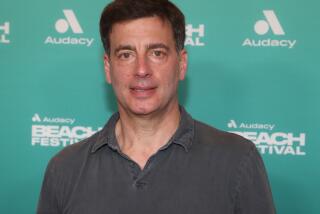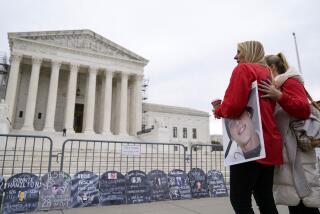Tribune bankruptcy confirmation hearing begins
The warring creditors in Tribune Co.’s bankruptcy case fired their opening shots Monday in a court hearing aimed at resolving a case that one lawyer said had come to resemble “water torture.”
Lawyers for the two principal groups of combatants presented U.S. Bankruptcy Judge Kevin Carey with a stark choice:
He can confirm a restructuring plan favored by senior creditors, the company and many unsecured creditors based on a decidedly imperfect settlement of the legal claims surrounding the company’s ill-fated 2007 leveraged buyout.
Or he can bless a competing plan offered by junior bondholders that would open the case up to massive litigation in which each creditor would have a chance to seek its own recovery in the courts.
Carey himself offered a possible third outcome at the end of opening statements from each side. Lawyers may convince him that both plans are confirmable, he said, in which case he would have to choose between them. But he also hinted that that they might convince him that neither plan is confirmable.
“What then?” he warned obliquely.
Lawyers in the case suggested that Carey’s statement was an attempt to coax both sides to the negotiating table to hammer out a global settlement that could finally end the case.
Representatives from both sides have said repeatedly during the 27-month case that they would welcome a consensual resolution. But on Monday compromise seemed the farthest thing from anybody’s mind.
The hearing opened with Aurelius Capital Management, the litigious leader of the junior-creditor group, complaining that Citigroup Inc., one of the large banks that anchor the senior-creditor group, had improperly withheld evidence vital to its case. Citigroup lawyers, not surprisingly, argued otherwise. Carey ordered that more position papers on the matter be filed overnight.
Tribune Co. (parent of the Los Angeles Times), the Official Committee of Unsecured Creditors, JPMorgan Chase & Co. and hedge funds Oaktree Capital Management and Angelo, Gordon & Co. have proposed settling the case by offering junior bondholders about 35 cents on the dollar. But the junior group, led by Aurelius, hopes to squeeze out a higher recovery by dragging the senior group into years of ligation — or presenting a credible threat of doing so.
James Sottile of law firm Zuckerman Spaeder, who argued for the senior-creditor plan, spent much of his opening statement laying out reasons the Aurelius plan was unrealistic. Although recoveries might theoretically be higher through a long litigation, a series of legal hurdles made that highly unlikely, he said. Aurelius “is making a bet not just for themselves but for everybody else in this case” that litigation will prove out, Sottile said, adding that most creditors don’t want “to bet the farm.”
Aurelius attorney David Zensky responded that the Tribune deal was “doomed to fail” and that evidence would show that fraudulent-conveyance litigation has a much better chance of maximizing recoveries than the settlement promoted by senior lenders. He also argued that Aurelius was never seriously invited to participate in those settlement talks, making the pact a one-sided affair improperly negotiated.






